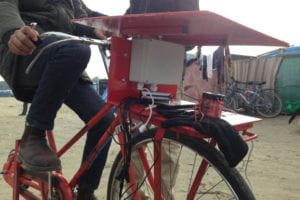
March 19: Shahram Khosravi (Stockholm University): “The stolen time of migration”

March 19: Shahram Khosravi (Stockholm University): “The stolen time of migration”

A seminar series organised by Dr Martina Tazzioli, with the support of the Centre for Postcolonial Studies.
Speakers for academic year 2019/2020:
Dr.Martin Lemberg-Pedersen (Aalborg University, November 20)
Prof. Engin Isin (Queen Mary University, December 9)
Prof. Claudia Aradau (King’s College, Spring term)
Prof. Sandro Mezzadra (University of Bologna, Spring term)
Prof. Nicholas De Genova (University of Houston, Spring term)
This seminar series centres on migration and technologies, drawing attention to the colonial and postcolonial genealogies of the current governmentality assemblages. In particular, it aims at fostering a debate about the mutual entanglements between the racialisation of some individuals as “migrants” and the political technologies used for governing unruly mobilities. The seminar series is characterised by an interdisciplinary approach with the purpose of challenging self-contained understanding of migration, and situating it within broader political, historical and theoretical analyses of bordering and racialising mechanisms. At the same time, it critically engages with technology, the technologisation of border security and datafication of mobility by highlighting continuities and differences with colonial modes of governmentality.